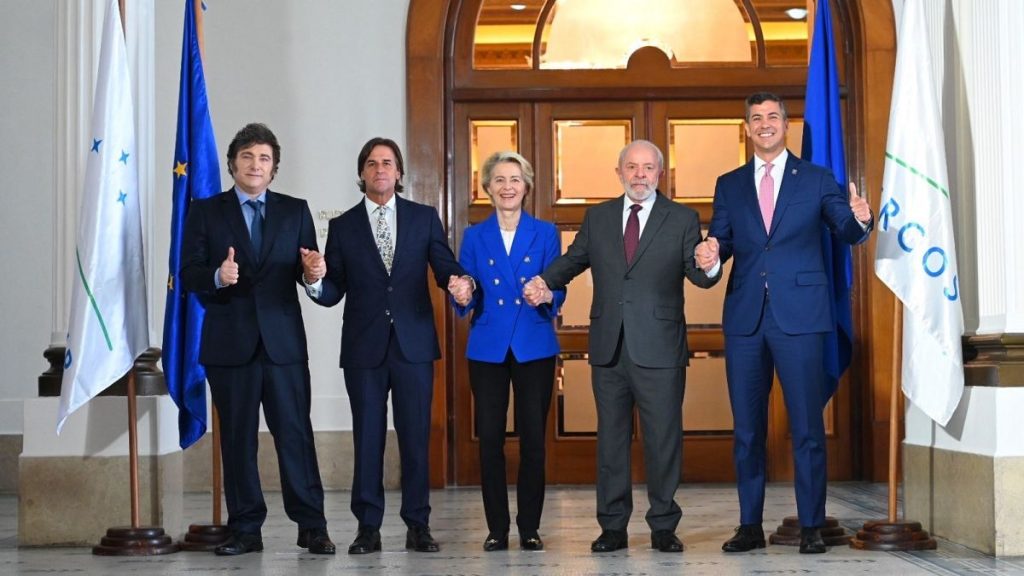The European Union and the Mercosur bloc, comprising Argentina, Brazil, Paraguay, and Uruguay, have reached a landmark trade agreement after over two decades of negotiations. This monumental deal, announced by European Commission President Ursula von der Leyen, encompasses a staggering 780 million people and aims to create a vast free trade area. Hailed as a “historic milestone,” the agreement promises to foster economic growth and strengthen ties between the two regions. However, the path to ratification is fraught with challenges, as the deal now faces scrutiny and potential opposition from EU member states, some of whom harbor concerns about the agreement’s impact on their domestic industries, particularly agriculture.
The agreement’s conclusion marks the culmination of protracted and often difficult negotiations spanning more than twenty years. The deal aims to eliminate tariffs and trade barriers on a wide range of goods and services, creating significant new market access opportunities for both European and Mercosur businesses. Proponents of the agreement emphasize the potential for increased trade and investment, bolstering economic growth and creating jobs on both sides of the Atlantic. Moreover, they argue that the agreement will enhance the EU’s influence in Latin America, a region increasingly targeted by Chinese investment.
Despite the fanfare surrounding the announcement, the agreement’s future remains uncertain. The deal requires the approval of all 27 EU member states, and several countries have already expressed reservations or outright opposition. France, a vocal critic of the agreement, has actively lobbied other member states to block its ratification, citing concerns about the impact on European farmers and environmental standards. Poland has also declared its opposition, while Italy has conditioned its support on receiving guarantees for its agricultural sector. The positions of Ireland, the Netherlands, and Austria remain unclear, adding to the uncertainty surrounding the agreement’s fate.
The opposition from several EU members underscores the complex political landscape surrounding the agreement. France’s staunch resistance, spearheaded by President Emmanuel Macron, stems from fears that the influx of agricultural products from Mercosur countries, particularly beef and poultry, will undermine European farmers and depress prices. Environmental concerns also play a significant role, with critics arguing that the agreement could lead to increased deforestation in the Amazon rainforest to make way for agricultural expansion. Balancing these concerns with the potential economic benefits of the agreement will be a delicate and potentially divisive task for the EU.
The timing of the announcement is particularly sensitive for French President Emmanuel Macron, who has been a vocal opponent of the deal and now faces the challenge of forming a new government following the collapse of Prime Minister Michel Barnier’s administration. The agreement’s conclusion, despite France’s objections, could be seen as a political setback for Macron, who has positioned himself as a defender of French agricultural interests. How he navigates this complex situation will be crucial for the future of the agreement and his own political standing.
The road ahead for the EU-Mercosur trade agreement is fraught with uncertainty. While the agreement represents a significant achievement in international trade negotiations, its ratification is far from guaranteed. The next stage involves a lengthy process of scrutiny and debate within the EU, with each member state having the power to veto the deal. The outcome of this process will depend on whether proponents can allay the concerns of skeptical member states and build a sufficient coalition to secure the agreement’s ratification. The stakes are high, with the potential for significant economic benefits and geopolitical implications hanging in the balance.

